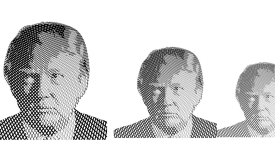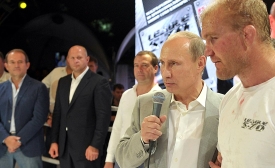Donald Trump
As Korean scrambles to build diplomatic links from scratch with a Donald J. Trump administration, Japanese Prime Minister Shinzo Abe moved swiftly to schedule a summit with the U.S. president-elect in New York next week. While Korean President Park Geun-hye spoke over the phone with Trump for about 10 minutes Thursday to reaffirm his support for the U.S.-Korea alliance, Abe and Trump held a 20-minute phone conversation and agreed to meet on Nov. 17.
Alone again. Since World War II’s end, Europe has looked at the world through a transatlantic lens. There have been ups and downs in the alliance with the United States, but it was a family relationship built on a sense that we would be there for each other in a crisis and that we are fundamentally like-minded. Donald Trump’s election as U.S. president threatens to bring this to an end – at least for now.
Despite Trump’s campaign rhetoric, the US is not in decline. Because of immigration, it is the only major developed country that will not suffer a demographic decline by mid-century; its dependence on energy imports is diminishing rather than rising; it is at the forefront of the major technologies (bio, nano, information) that will shape this century; and its universities dominate the world league tables.

Shaun Riordan on the Trump victory.
The election of Donald Trump as the next U.S. president is sure to send shockwaves throughout the global development community as worries rise about his aid policy and stated position on climate change. Little is known about exactly what a Trump presidency means for foreign aid, in part because in this election development issues have been largely overshadowed by debates over national security, immigration.
Donald J. Trump’s stunning upset over Hillary Clinton to become the 45th president of the United States has shocked the world. His triumph holds the potential for overturning the world order. Criticisms of trade, immigration and international engagement were central to his candidacy. [...] On Wednesday, leaders reacted to a reshaped world.

Markos Kounalakis on avoiding a "Putinocracy" in the United States.
Because of the United States’ predominant role in geopolitics and global economics, foreign governments and their citizens scrutinize the candidates and their positions, which can hint at future American policies. The campaign also acts as a snapshot of American democracy. According to political scientist Joseph Nye, America’s soft power – its ability to persuade foreign leaders and exert influence abroad – partly depends on how the rest of world interprets our political process, values and outcomes.







